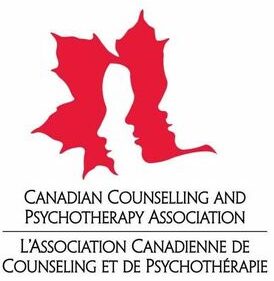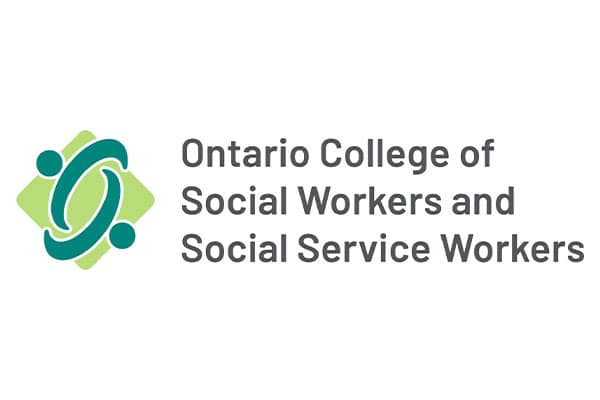How to Choose a Therapist in 2025

I feel like every mental health website has a statement about “how to choose a therapist”. So I’m hoping that this one will be actually useful, or at least different. It’s actually really important, and a very real issue.
There is a major challenge in the world of psychotherapy in 2025, and it has been growing steadily for a few years now. It is not unique to the field of mental health, but it is especially compounded in this industry in the last few years. Essentially, it is the problem of finding truly good help.
This is important in every domain of our lives, of course. I mean, choosing a good hair stylist – that’s important, right? But if you get a bad haircut, what is the overall cost to your life? (jokes aside, at least hair eventually grows). A therapist is a larger investment in both time and energy, and the costs are fairly huge: a stint with a bad therapist can be not only costly but emotionally damaging, compared to the possibility of excellent therapy that could be a significant positive shift in your life.
Maybe I’m biased here, but I’ve had both good therapy and bad therapy for myself. Fortunately, the worst therapy I have had was merely a waste of time. It was cheap; it was useless. But the good therapy has been truly life-changing, and of inestimable value.
How do you know who is a good therapist? How do you know if that therapist is right for you (even if they are “good”)?
We have no way in this profession to really, truly help the prospective client or consumer to sift the good from the bad, the helpful from the unhelpful, the ones that will facilitate real transformation from the ones that may actually and accidentally stunt growth, or worse yet, create various forms of damage.
I have learned over the years that there are therapists that exist at every point of this spectrum. And all of them mean well.
Why is that? Why is this particularly bad in the field of mental health? There are several reasons. I won’t get detailed about them, but here are some: One is that mental health has only recently been getting regulated and culturally legitimized. Another reason is that it is illegal for us to solicit or share client reviews which could assist in this. (google reviews are a bit of a loophole: I can’t control their existence!) Lastly, a combination of the lack of education of the public on what on earth they might need, and what to look for, plus the enormous variety of professionals and specializations and designations. Honestly, for the innocent consumer, it is a minefield.
In this article we’ll explore some things about psychotherapists /mental health counsellors specifically, since this field has its own unique concerns. As we explore them I hope we can all become better educated – both as therapists and as clients, since many of us are both.
I’ll start by talking about some fairly obvious helpful ideas about simply choosing a therapist that might be right for you. But then I’ll get into some of the industry nitty-gritty that might be granular but is important to the discussion.
There is no ‘Best Therapist’ for Everyone
First of all it is important to know that there is no such thing as the best therapist in the world, because finding the right therapist is about finding the right personal fit for you. It’s like finding a good friend: it will be slightly different for everyone. However, also like finding a good friend, there are certain universal qualities which can be good to discern. Maybe all good friends are trusting, kind, helpful, for example. And any good therapist is going to need to be also trustworthy, compassionate, helpful (obviously) but also intelligent, well-trained, ethical, emotionally mature, and capable of holding the depth of human experience without judgment. Some of this can be learned and taught in school. Much of it cannot. How do you know?
One thing that many people don’t realize is that it is ok to interview your next possible therapist. Most therapists worth their salt will offer a free, short consultation, and if they don’t, just ask for one. Read about their credentials and their experience if you can. Website biographies are good, but limited. Consider both their education and their lived experience. Get a sense of where they are coming from, and why they are doing this.
What you want is to get a sense of both their capacity (training, experience, emotional and technical intelligence) combined with your compatibility (overlapping of needs, personal comforts, logistics).
General List of Considerations:
- Qualification and Education
- Check for appropriate degrees, the type of school, and professional registration.
- Look at their further accreditation and professional growth: post-grad certifications or courses in types of therapies and specializations. (it is well known that these are not just good, they are crucial.)
- Look for the term “Qualifying” – this means that the person is not yet fully registered and is still getting their required hours of experience. This is a recent graduate and a novice therapist. Not that this is bad- just be aware.
- Experience
- This is a field in which years of practice, as well as life experience, are enormously important. Has the therapist wrestled with their own demons? Have they had their own therapy journey? Have they worked or lived through things that might give them depth and insight? Have they had any actual success in helping people with what you are looking for? These things matter SO MUCHHHH.
- General rule: don’t EVER go to a therapist that has not done their own therapy! Big red flag there. (that’s like going to a yoga teacher who has never done yoga, just learned how to teach it. Or any number of examples. A nutritionist who has never thought about what they eat? Etc.)
- Compatibility
- Therapy is relational. Working with someone you simply get along with, that you can build a connection with, is proven to be essential. You may need certain criteria (gender, LGBTQ+, age, lived experience) so beyond those obvious things, you just have feel open to this person.
- Approach
- Choose a style of therapy that is in alignment with your needs. CBT? EMDR? IFS? If you aren’t sure, do a little homework. It might matter a little or a lot. Therapy skills are tools, and it matters more how they are applied, and who is doing so. CBT is vastly overrated, especially when used rigidly and by someone new. Most experienced therapists have many skills to draw on to meet your needs.
- Be wary of generalized advice that says “anxiety needs therapy ‘x’. depression needs therapy style ‘y’. addiction needs therapy ‘z’. It’s rarely so clear. Good therapy is good therapy, and good therapists are good therapists. Bet on the person, not the acronym.
- Logistics
- Do you want in-person or online? Are they actually taking new clients? Do they have time the day of the week, and times that you are available?
- What is their cost? Do you have insurance that covers this? Do they have a sliding scale? Is their fee appropriate to their experience?
- Note: In Ontario, Registered Psychotherapists are treated quite differently by insurance companies than Registered Social Workers, so pay attention to this!
Also, and I can’t believe I need to say this: You can’t tell anything about a therapist by the way they look. My goodness people. Don’t choose a trauma therapist because they look young, cute and have a flashy website. (yes, I have heard people actually say this)
Bottom line: do your homework.
It’s on YOU to thoughtfully choose. And consider the perhaps unfortunate fact that no matter how well you research and do your due diligence – there is not guarantee of a good match. You may need to “try” a couple different therapists before someone clicks. I’ll be the first to say that although – I hope! – I’m a therapist who at this point can work with a really huge diversity of clients, I’m simply not the right fit for everyone. That’s fair and honest. And, it ought to be a discussion. Therapists should not be shy to ask the client, “hey, is this working for you?”. And clients should not hesitate to say, “hey, this is not really going where I want.” Therapy is a dialogue; it is a collaboration. It should feel comfortable – at least the relationship part – even if the work itself might be hard.
Far too many people experience therapy that just doesn’t work well for them and then decide, that either “therapy doesn’t work” or that “they can’t do therapy”. Boy does that frustrate me. That’s like having a bad date and saying “I guess I’ll just be single forever”. Obviously, our desire for partnership is a stronger drive than our hope for emotional growth and healing, but there is a whole sea of therapists and therapies, including all the medical and non-traditional healing modes. Keep looking!
Here’s a general tip: if you have not had therapy that was truly life-changing, then you just haven’t found the right therapy or therapist for you!
I will give you that with a guarantee.
I’m not trying to say that this would be me, or anyone else I know. Maybe your ideal therapist does something that I find utterly useless. Maybe they live in Peru. Maybe you just need to read their book or do their meditations at home, for free. I don’t know. But I believe that healing, insight, and freedom from our burdens is not just available, but a birthright for all of us. We just need to believe that it is possible, and to not settle for less than something that works.
Part 2: Better Help?
Unfortunately, there are a lot of not-so-good therapists out there. People with good intentions, who want to help, but have no knack for it. And often, not even any training. Same is true for probably most professions, but it’s rather pronounced in therapy right now. Please be careful and thoughtful. In Ontario, Canada, the term “psychotherapy” is protected – meaning not just anyone can say that they are a psychotherapist. They need the proper education and accreditation. So if they are a ‘coach’ or a ‘mental health counsellor’ or ‘addictions worker’, these are vastly different things.
Which brings me to a little note here about big-business online counselling sites. Mental health is trending the past years, which is great, but it also means huge corporations are wanting to cash in on the action. Hence we have sites like Better Help, which gobble up the top spots in Google with massive advertising budgets, since it/ they are owned by big tech companies.
From what I can tell, some people find that they can get some good help here. It is a vastly less expensive option to a local, well-trained therapist, so if all you need is to vent and talk, it might be a great option. However, you kinda get what you pay for. Many of the counsellors you get are not registered, are students, or have minimal accreditation, and well, there is a bit of a joke amongst therapists about the type of person who has to resort to working at places like this.
Also note that these companies work out of a very different model. You’re getting counselling but not what we might call real therapy. There is a very “brief” mode of therapy meant to address urgent concerns, but not deep ones. You’ll get a friendly voice, but are you likely to address long -term problems? Not really. So just know this going in. I’m sorry that thousands of people using this service think they are getting good therapy. It is, frankly, pretty unlikely. Many people have come to me after being frustrated with this service, and when I hear what they got, it feels like a disservice to our whole profession. It’s like a guy pretending to be a doctor, charging pennies per visit and giving people a curing pill that turns out to be vitamin C. Like, that’s what you were sold as therapy? Oh boy.
It’s often worse than nothing because then people say, “well I tried therapy already, and it didn’t work.”
Yeah but did you? Was it really therapy?
Better Help? Better than what, exactly?
Yorkville MACP Rant
Also, one of the things I feel I have to address here is that there are vastly different qualities to the education that a person might have. One of the biggest problems in the field of therapy in Canada right now is that the field has become inundated by young graduates. Yorkville university has an online-only Masters of counselling psychology program that graduated somewhere between 5,000 and up to possibly 6,000 students in 2024 alone (they are not exactly transparent about these numbers!) If you want some comparison, in 2019 their cohort was approximately 600. And back when I graduated from my program at Wilfrid Laurier just over 10 years ago, my graduating class was under 50.
On one hand we might think that this is great, as it addresses the great need for mental health help in our world. But there is a problem here: the Yorkville program seems to be a very poor program. It appears to be graduating students who are still profoundly underprepared, and offering them what seems like zero support. I have interviewed many of these students. I have seen their resumes. It’s enough to make me cry. I get emails almost literally every week from desperate Yorkville students who cannot find anywhere to get their practicum placement hours.
It seems, to many of my colleagues, that many people see the ‘online-only’ masters at Yorkville as an easy route to a professional designation after which they can quickly make money. But as far as I can tell the training is astonishingly poor – especially compared to the intimate classes, actual relationship-building rapport with teachers that others of us had (and still get from more substantial programs.) I have interviewed several recent graduates from the Yorkville program and it has been very discouraging to consider that they young students are shoved out of the nest, so to speak, thinking they might be able to fly. I don’t want to speak for all of them, because I have also seen some Yorkville students who fully recognized that their studies were not sufficient, and they worked like crazy to do extra trainings and get extra experience, and that is exactly what is needed. Yes, I have hired Yorkville students! But I have also talked to young graduates who have just given up on the field: they couldn’t get jobs, couldn’t get clients, and/ or when they did, they realized they had no real ability to help.
Another factor here is the pandemic. Covid changed the field of therapy, as it normalized online sessions. This has been huge for several reasons, but for this article, the main thing is that it now takes almost zero overhead or financial risk to put up a pretty website and try to get clients as a therapist. It used to be that you might have to at least rent a temporary office space. And 10 years ago we still got referrals, and word of mouth. Now, the internet rules the show. Now, the market is saturated with thousands of recent graduates who are vying for therapy clients, charging premium fees for their time, and seem to me to be terribly under-qualified. But their social media is on point.
Is this addressing the mental health crisis?
So I realize that this has become a bit of a rant against the Yorkville program, but it is also just a rant against the industry. There is just something about this whole thing that doesn’t work. It seems like a misleading cash -grab by a school that has tapped a trend. One of my colleague-friends who runs a therapy clinic likens this to what happened with real-estate agents – many people are just saying that it seems like a quick and easy degree. Hey, they can do it part time while they have their other job.
Well, I guess time will tell.
I’m happy to be corrected and educated on this, by the way. I would love to be proved wrong. But what many of us are seeing in Yorkville is a machine churning out graduates with very little regard to the context or result. My guess is that in a few years’ time, we are all going to know people with Yorkville Counselling degrees that they have abandoned to go back to other work that they are more suited to. It is a treacherous time to enter this field. If you are in Ontario, think of what happened to teachers a bunch of years ago.
Things tend to regulate themselves. But in the meanwhile, caveat emptor! Buyer beware.
This is an investment in your self, and in your family and community and world. Having a good haircut is an important consideration; how much more so is the shaping of your mind?






